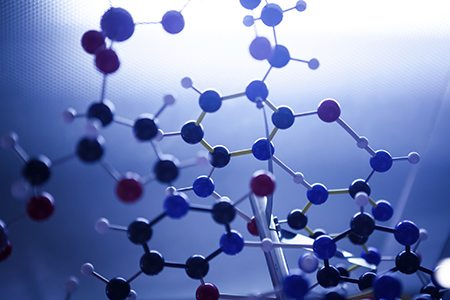 The new laboratory will utilise expertise that already exists in the University’s Centre for Genomic Research and Institute of Integrative Biology
The new laboratory will utilise expertise that already exists in the University’s Centre for Genomic Research and Institute of Integrative Biology
Scientists at the University of Liverpool have been awarded £2M to build a state-of-the-art DNA synthesis facility, a capability offering much needed tools for genome engineering to the academic and private sectors.
This facility, named GeneMill will be part of the UK’s focus on synthetic biology, identified by the Government as one of the ‘Eight Great Technologies’ in which Britain is, or can be, a world leader.
Synthetic biology
Synthetic biology involves the construction of artificial biological devices, pathways or networks or the re-engineering of existing natural ones. Key to this engineering process is the construction of parts or components, which are encoded in DNA. One of the biggest hurdles in synthetic biology is the creation and assembly of starting materials: modular bits of DNA that code for a particular function and are synthesised in the lab.
Creating such starting materials is time-consuming and expensive and a challenge that the Liverpool group of scientists will address through the GeneMill. Like traditional mills, scientists will take in raw materials and use them to create new products.
Through this approach the GeneMill will provide a rapid, cost-effective and accessible fabrication facility for DNA parts. By removing the complexity of manufacture for the user, GeneMill will allow researchers to focus on the design and testing of the re- engineered organisms which, amongst other areas, can be applied to produce novel chemicals, including new antibiotics and drugs and, at the large scale, feed stocks for the chemical industry.
Universities and Science Minister David Willetts said: “Synthetic biology is one of the eight great technologies of the future with the potential to underpin growth and create jobs in a low carbon economy. This investment in SynBio will hopefully stimulate even more interest and financial support and reinforce our efforts to develop a leading SynBio community in the UK.”
Utilise expertise
The new laboratory will utilise expertise in the application of DNA and protein technologies and computational biology that already exist in the University’s Centre for Genomic Research and in the Institute of Integrative Biology.
Plant biologist, Professor Anthony Hall, is the lead academic for the GeneMill project. He said: “This new lab will provide a resource for the whole of the North of England. It will add to a major concentration of technical expertise and facilities in synthetic and DNA technologies in Liverpool, which places the region at the forefront of research and development in this field.”
The funding has been provided by the Biotechnology and Biological Sciences Research Council (BBSRC) as part of a package of funding for synthetic biology made by Science Minister, David Willetts at the SynBioBeta Conference last night (Wednesday 2 April).
